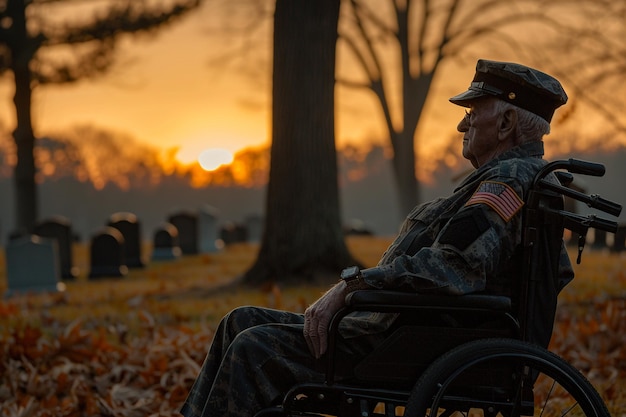New Legislation: Your Rights and Resources as a US Veteran in 2025

New Legislation: Understand Your Rights and Resources as a US Veteran in 2025 introduces updated benefits, healthcare provisions, and support services tailored to enhance the well-being of US veterans, requiring a comprehensive understanding to navigate effectively.
As we step into 2025, it’s crucial for US veterans to stay informed about the new legislation: Understand Your Rights and Resources as a US Veteran in 2025 that impacts their benefits, healthcare, and overall well-being. This article delves into these recent changes, offering a comprehensive guide to navigating the updated landscape and accessing the resources available to you.
Navigating the Updated Healthcare Benefits for Veterans in 2025
The landscape of healthcare benefits for veterans is continually evolving. Understanding these changes is crucial for accessing the care you deserve. The new legislation brings significant updates to coverage, eligibility, and the types of services available.
Expansion of Telehealth Services
Telehealth is rapidly changing how healthcare is delivered. The new legislation expands access to telehealth services for veterans, especially those in rural or underserved areas.
- Increased funding for telehealth infrastructure and training programs.
- Expansion of covered services to include mental health counseling, chronic disease management, and specialized consultations.
- Reduced barriers to accessing telehealth, such as easing restrictions on location and technology requirements.
Mental Health Support Enhancements
Recognizing the critical importance of mental health, the new legislation prioritizes improved mental health support for veterans.
- Increased funding for mental health programs and initiatives.
- Expansion of access to evidence-based therapies such as Cognitive Behavioral Therapy (CBT) and Eye Movement Desensitization and Reprocessing (EMDR).
- Improved coordination between VA and community-based mental healthcare providers.

These changes represent a significant step forward in ensuring veterans have access to the healthcare they need and deserve, regardless of their location or circumstances. By staying informed and utilizing the resources available, veterans can optimize their healthcare benefits and improve their overall quality of life.
Understanding Financial Assistance and Compensation Updates
Financial stability is a cornerstone of well-being, and the new legislation includes important updates to financial assistance and compensation programs for veterans. These changes aim to provide enhanced support to those who have served.
Increased Disability Compensation Rates
Disability compensation rates are adjusted periodically to reflect changes in the cost of living and to ensure veterans receive adequate support.
- Annual cost-of-living adjustments (COLAs) to disability compensation rates.
- Expanded eligibility criteria for certain disability benefits.
- Streamlined application processes to reduce delays and administrative burdens.
Enhancements to Education Benefits
Education benefits empower veterans to pursue higher education and career training. The new legislation introduces several enhancements to existing education programs.
- Increased monthly housing allowance (MHA) rates for veterans using the Post-9/11 GI Bill.
- Expanded eligibility for veterans pursuing STEM (science, technology, engineering, and mathematics) degrees.
- Improved support services for student veterans, including academic advising and career counseling.
These financial assistance and compensation updates are designed to provide veterans with the support they need to achieve financial stability and pursue their educational and career goals. By understanding these changes and taking advantage of the available resources, veterans can enhance their financial security and overall well-being.
Housing Assistance Programs: What’s New in 2025?
Secure and stable housing is fundamental to well-being. The new legislation includes updates to housing assistance programs aimed at helping veterans secure safe and affordable housing.
Expanded Eligibility for Housing Grants
Housing grants provide financial assistance to veterans with disabilities to adapt or modify their homes to meet their needs.
- Increased grant amounts for Specially Adapted Housing (SAH) and Special Housing Adaptation (SHA) grants.
- Expanded eligibility criteria to include veterans with certain types of disabilities.
- Streamlined application processes to reduce delays and administrative burdens.

Support for Homeless Veterans
Addressing veteran homelessness remains a top priority. The new legislation includes provisions to expand support services for homeless veterans and prevent future homelessness.
- Increased funding for programs that provide temporary and permanent housing for homeless veterans.
- Expansion of supportive services such as case management, job training, and mental health counseling.
- Improved coordination between VA and community-based organizations to address the needs of homeless veterans.
The updates to housing assistance programs reflect a commitment to ensuring all veterans have access to safe, affordable, and stable housing. By utilizing these resources, veterans can secure housing that meets their needs and supports their overall well-being.
Employment Opportunities and Career Support for Veterans
Transitioning to civilian life can be challenging, and securing meaningful employment is a key factor in a successful transition. The new legislation includes initiatives to enhance employment opportunities and career support for veterans.
Enhanced Job Training Programs
Job training programs equip veterans with the skills and knowledge they need to succeed in today’s competitive job market.
Increased funding for job training programs tailored to the needs of veterans.
- Expansion of apprenticeship and on-the-job training opportunities.
- Improved coordination between VA and employers to connect veterans with job openings.
Support for Veteran-Owned Businesses
Veteran-owned businesses contribute significantly to the economy. The new legislation includes provisions to support the growth and success of these businesses.
Increased access to capital and other resources for veteran-owned businesses.
- Expanded eligibility for government contracting opportunities.
- Technical assistance and mentoring programs to help veteran entrepreneurs succeed.
These initiatives are designed to empower veterans to pursue fulfilling careers and contribute their skills and experience to the workforce. By leveraging these employment and career support resources, veterans can achieve their professional goals and build successful futures.
Legal Assistance and Advocacy Resources for Veterans
Navigating legal issues can be complex, and veterans may face unique challenges. The new legislation includes provisions to enhance access to legal assistance and advocacy resources for veterans.
Expansion of Pro Bono Legal Services
Pro bono legal services provide free legal assistance to veterans who cannot afford to hire an attorney.
Increased funding for organizations that provide pro bono legal services to veterans.
- Recruitment and training of attorneys to represent veterans in legal matters.
- Focus on addressing legal issues related to disability benefits, housing, and employment.
Advocacy for Veterans’ Rights
Advocacy organizations play a crucial role in protecting and advancing the rights of veterans.
Strengthened partnerships between VA and veteran advocacy organizations.
- Increased awareness of veterans’ rights and available resources.
- Promotion of policies that support the well-being of veterans.
By providing access to legal assistance and advocacy resources, the new legislation aims to ensure veterans receive fair treatment and have their rights protected. These resources can help veterans navigate legal challenges and access the benefits and services they deserve.
Community-Based Resources and Support Networks
Community-based resources and support networks play a vital role in the well-being of veterans. The new legislation recognizes the importance of these resources and includes provisions to strengthen and expand them.
Local Veteran Service Organizations (VSOs)
VSOs provide a wide range of services and support to veterans at the local level.
Increased funding for VSOs to expand their services and outreach efforts.
- Support groups and peer mentoring programs for veterans.
- Assistance with accessing VA benefits and healthcare services.
Partnerships with Local Businesses and Organizations
Collaborative partnerships between VA, local businesses, and community organizations can enhance the support available to veterans.
Incentives for businesses to hire veterans and support veteran-owned businesses.
- Community events and programs to honor and support veterans.
- Volunteer opportunities for veterans to give back to their communities.
These partnerships foster a sense of community and provide veterans with valuable resources and support networks. By connecting with local resources and organizations, veterans can build strong relationships, access needed services, and enhance their overall well-being.
| Key Point | Brief Description |
|---|---|
| ⚕️ Healthcare Expansion | Increased telehealth, mental health support, and coordinated care. |
| 💰 Financial Aid Boost | Higher disability rates, better education benefits, and faster processing. |
| 🏡 Housing Upgrades | More housing grants, broader access, and support for homeless veterans. |
| 💼 Career Growth | Better job training, vet-owned business support, and easier job connections. |
FAQ
▼
Key changes include expanded telehealth services, increased funding for mental health programs, and improved coordination between VA and community-based healthcare providers.
▼
The legislation includes annual cost-of-living adjustments (COLAs) to disability compensation rates and expanded eligibility criteria for certain disability benefits.
▼
Available programs include Specially Adapted Housing (SAH) and Special Housing Adaptation (SHA) grants, as well as support services for homeless veterans.
▼
It enhances job training programs tailored to veterans, increases access to capital for veteran-owned businesses, and expands government contracting opportunities.
▼
Veterans can find assistance through pro bono legal services, veteran advocacy organizations, and partnerships between VA and community-based organizations.
Conclusion
Staying informed about new legislation: Understand Your Rights and Resources as a US Veteran in 2025 is paramount for US veterans to access the benefits and support they deserve. By understanding the updates to healthcare, financial assistance, housing, employment, and legal resources, veterans can navigate the system effectively and enhance their overall well-being. Utilize the provided resources and support networks to ensure you receive the full benefits of your service.





